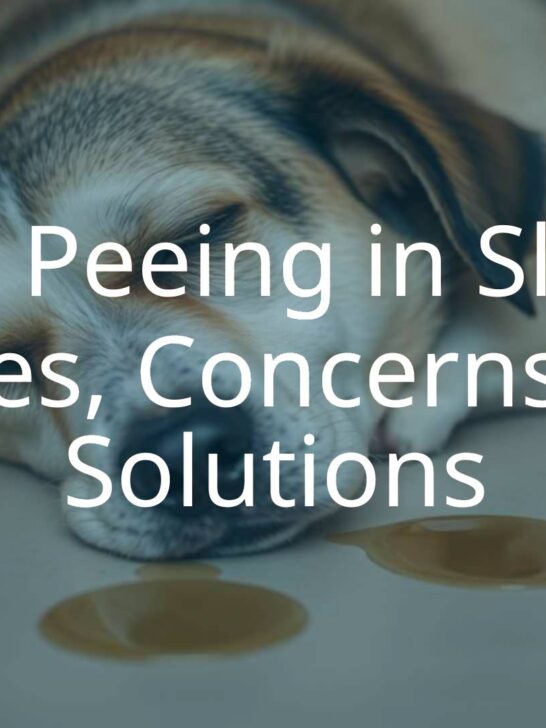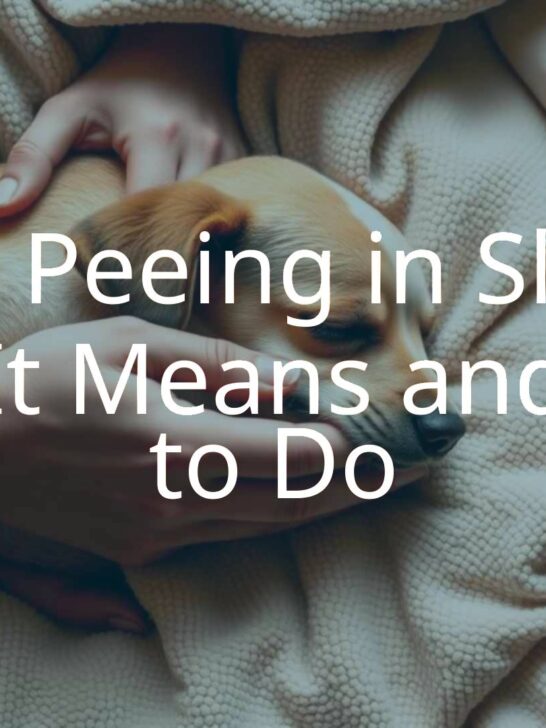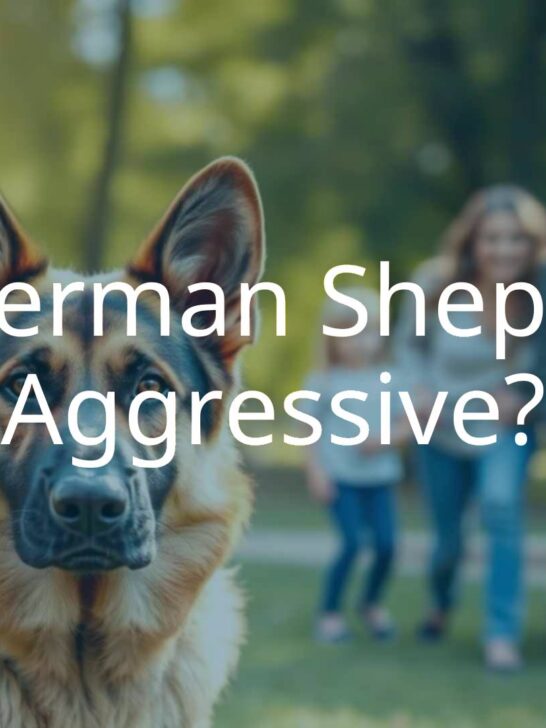What Smells Do Dogs Hate? 12 Scents that Repel Dogs
It’s a well-known fact that dogs have an incredible sense of smell—but we rarely stop to consider what that means for those sensitive noses in our smell-rich homes.
It’s estimated that dogs can smell anything from 10,000 to 100,000 times better than we can! They also have over 300 million olfactory cells that help them smell. We only have 5 million.
Imagine what homes packed with cooking smells, deodorants, air fresheners, incense, and many other smells are like for them.
Knowing what smells your dogs are particularly sensitive to, and how to mitigate their impact on your best friend, is critical to being a responsible dog owner.
Below, we’ll look at some of the worst candidates. You can also leverage the power of these smells (where safe) to help keep your pooches out of areas they’re not meant to be in, so knowledge is power, as they say.
Let’s get down to it.
Citrus
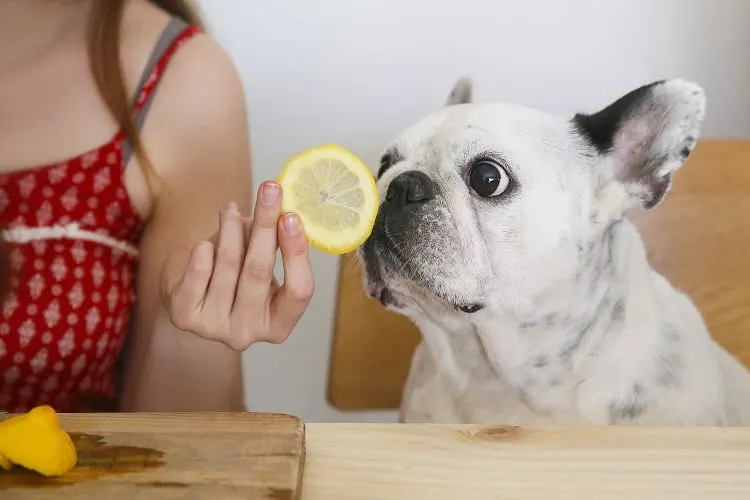
You wouldn’t think something that smells as good to us as citrus fruits could be problematic for our canine friends, but it is. The bright and vibrant smell we associate with citrus, comes from the pith and skin of the fruit.
Think about accidentally biting down on some orange peel—it’s very bitter, right? Now imagine that hit with a sensitive nose! It’s simply too intense—and thus, irritating—for your companion’s tender nose.
Limonene, a product also found in most citrus products and a wide range of “natural” beauty products, can be actively toxic to dogs, so be very careful.
Alcohol
While some dogs seem to show a lot of interest in the hops-rich smell of beer, any type of grain alcohol or spirit, including rubbing alcohol, is simply a no-go. While it may be cute to encourage your pet to investigate your beer, it’s far more responsible to keep them away from any alcohol.
Not only does it smell bad to them, but it’s also an irritant for the skin and delicate mucous membranes, so it can actively harm them.
Because of this, you should never use a strong alcohol solution on your dog, or to keep them away from an area.
Never use rubbing alcohol directly on your pet. If you need to clean a wound, a pre-bought irrigation rinse, or a saline mix, is a far safer alternative.
Vinegar
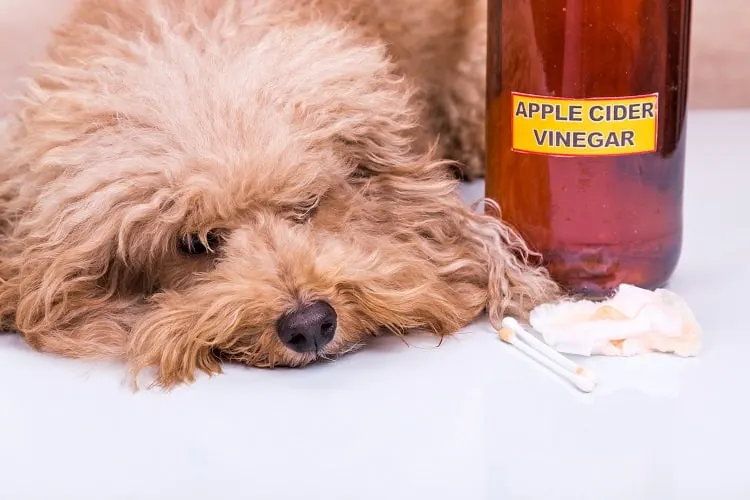
Vinegar is seeing a boom as an eco-friendly cleaner, but it’s not good for your pup. Vinegar is made from acetic acid.
While it’s safe, non-toxic, and made naturally, your pooch certainly doesn’t appreciate the smell of fermented fruits Because it’s not harmful, just smelly, you can use a 1-part vinegar and 3-part water spray to keep pets off upholstery and lawns.
Apple cider vinegar has some benefits for dogs that have skin issues, but the smell will still bother them. You can mix it with their regular shampoo to mask this a little.
Chili Peppers
Any variety of pungent and strong pepper is going to bother your dog, for example, jalapenos. This is because they contain the chemical compound capsaicin, the same one that makes these products taste tingly and hot.
This is also the same substance used in a concentrated form in Mace and Bear spray—so imagine how it smells to your dog!
Chili pepper or powder often sets dogs off from a terrible sneezing fit. It can be used as a deterrent for dogs, but be careful not to overdo it or you could cause irritation to their mucous membranes.
Most Ground Spices

The most potent or pungent spice powders can be overwhelming to your dog’s nose. This includes very common scents like mustard, cayenne pepper, ginger, nutmeg, allspice, and cardamom.
Remember that just because humans can eat something, this doesn’t mean our canine companions can. While these powders, used in a water solution, can be used to keep your dog away from areas they shouldn’t be in, always check the safety of the specific herb.
Using them in powdered form is not recommended, as they are much stronger and the small particles can be actively inhaled, irritating the nose.
Fresh Herbs
If a herb is strong-smelling to you, your dog will hate it. Think mint, basil, rosemary, and thyme. This is due to the powerful and volatile aromatic oils in those herbs.
You can plant these herbs to keep dogs out of flowerbeds, but always check that the particular herb is safe around dogs. Not all are.
Garlic and Onions
Both of these common foods are in the allium genus, as are some feature plants you might have in your landscape.
While we think they taste great, dogs hate the smell—and onions, specifically, can be poisonous to dogs in large amounts, too. Make sure to be careful around your pooch with this family of plants.
Acetone and Nail Polish
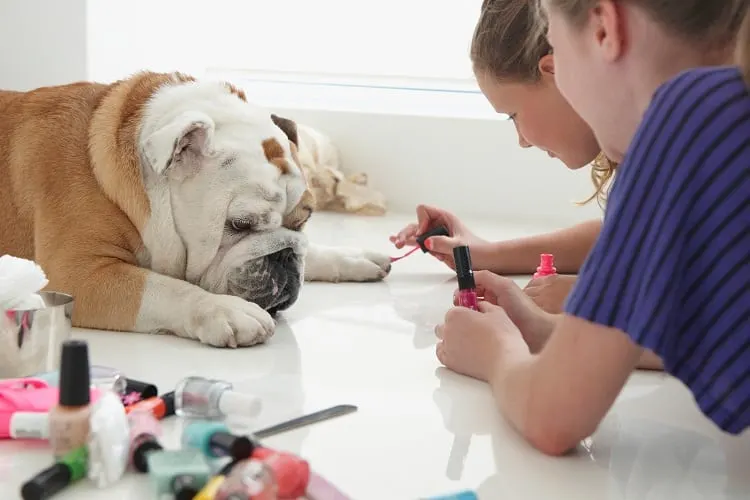
The strong chemical cocktail of nail polish, and the even stronger smell of acetone in nail polish remover, are actively dangerous to your dog’s nose and can easily irritate their sensitive nasal membranes.
Lock your dog out of the room when you indulge in your beauty routine, and make sure to keep the space well-ventilated for you too!
In fact, dogs shouldn’t be near most of our beauty products, including hair sprays, sunscreen sprays, and more. Make sure not to expose your dog to these products—and keep them out of your bathroom or beauty table!
Most Cleaners
Ammonia or chlorine are two highly common ingredients in cleaners throughout our home—and they have a smell that dogs hate. Not only are these fumes deeply disgusting to them (and us), but it’s highly dangerous to inhale them.
Remember that you should never mix cleaners as some chemicals have hazardous interactions.
For your health and your dog’s, make sure to use them in a well-ventilated space and don’t let any household member breathe in the fumes.
Enzymatic cleaners typically have no smell (unless added by essential oils, see below), are eco-friendly, and are great for many pet-based odors.
If you’re looking for safer cleaners to use around your pets, they can be a great choice, but always check the other ingredients.
Cologne and Perfume
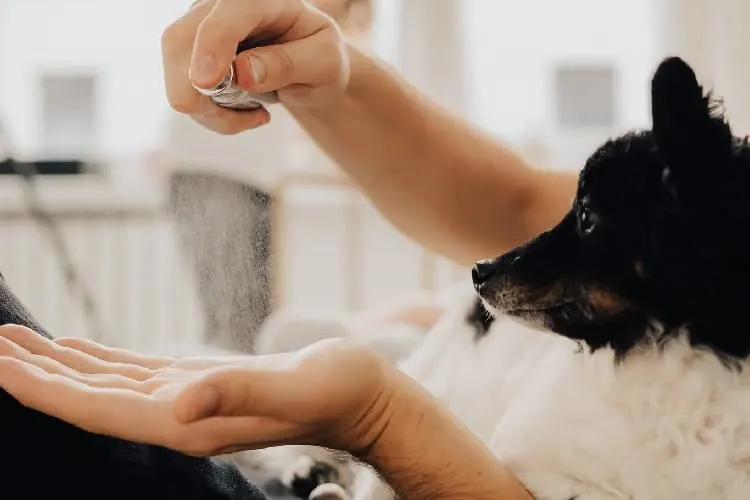
While these are fine in trace amounts on the skin, if you overdo it, you might put your pooch off. It’s a combination of factors in this case.
Most perfumes use denatured alcohol, plus very pungent aromas that can be too much in concentration. Sensitive dogs might even struggle with strong deodorants and air fresheners for a similar reason.
Because dogs have such a good sense of smell, and because it’s so important to how they navigate the world, be aware that if you change your regular deodorant or perfume, it might puzzle your dog.
They’ll have gotten used to your “usual” smell, and it’s not normal for mammals to change their body smell as easily as we do.
However, they will soon get used to the change, so don’t worry. However, dogs do like to smell your natural skin smell (body odor isn’t needed, though your dog won’t judge), as they find it a comforting reminder of the security they feel around you.
Dogs don’t want to be in a constant cloud of fake perfume smells. As much as “doggy perfume” makes their coats smell good to us, save it for special occasions and let them stay clean and fresh through regular grooming and bathing instead.
Naphthalene Mothballs
We all know how strong mothballs smell, but they are also highly dangerous to consume for dogs and humans alike. Make sure you never leave even a single mothball where your dog can access it!
Essential Oils
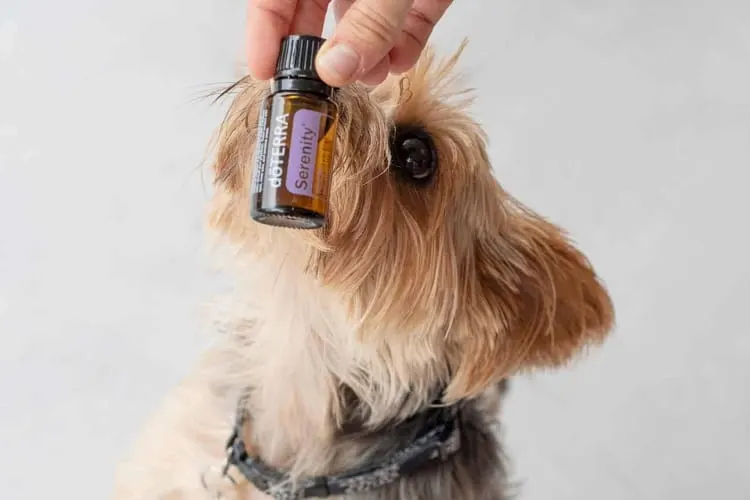
Remember when we mentioned volatile plant oils earlier? Essential oils are highly concentrated oils that are made from these same chemical compounds.
Despite the current tendency to mention essential oils as a “safe” home treatment for a range of things, they are actively dangerous for many of our cats.
While dogs are a little less susceptible than cats, many of the so-called “harmless” essential oils can be very toxic for your dogs.
Citronella oil can be used to deter dogs from areas they shouldn’t be getting into without harm. Commonly used in anti-insect candles, you can apply it to areas you want your pup to stay out of.
Conclusion
Did you realize how sensitive your dog’s nose really was? While it gives them a rich and fascinating world to explore, it also means that our modern homes can be very overwhelming to them.
By keeping these 12 smells in mind, and minimizing your dog’s exposure to them, you’ll provide an even better environment for your furry little friend.














